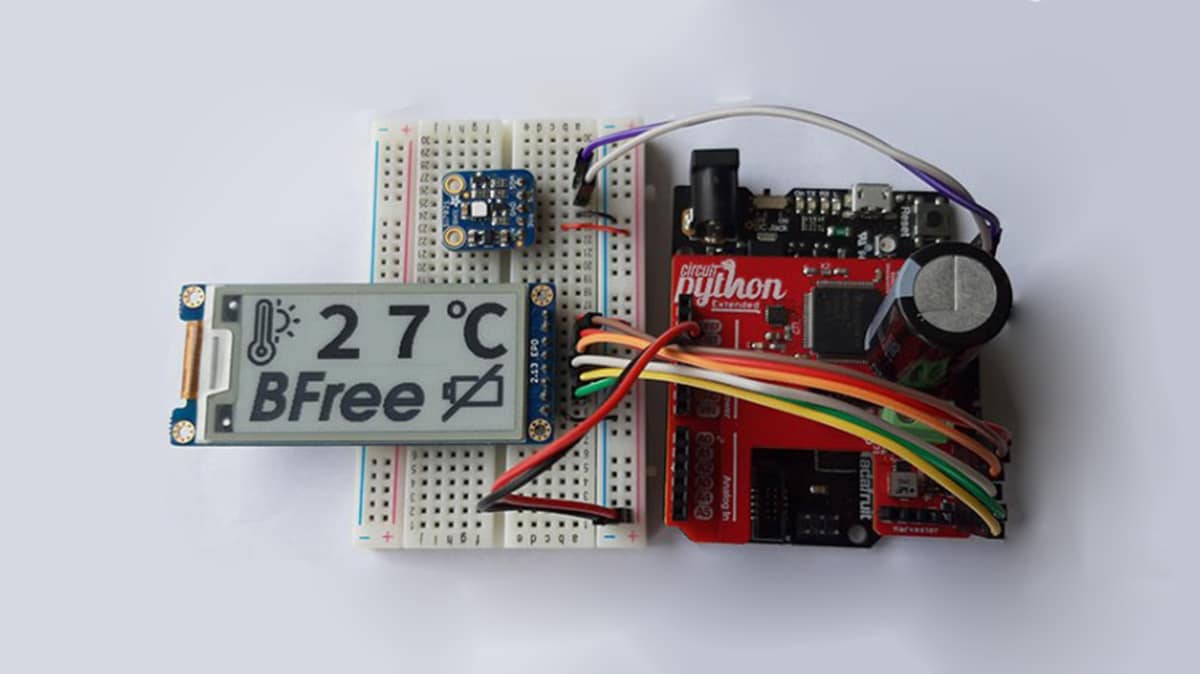
One of the main concerns of young people who grew up in the 90s was the batteries in their portable game consoles: running out of power in the middle of a game.
Last year, engineers from Northwestern University and the Delft University of Technology (TU Delft) introduced the world’s first battery-free Game Boy . This, the researchers said, was capable of harvesting both solar energy and the user’s kinetic energy from button mashing to power an unlimited lifetime of gameplay.
Now, the exact same team has gone one step further and this week unveiled a new platform that enables makers, hobbyists, and novice code writers to build their own battery-free gadgets that run with intermittent, harvested energy, such as solar power ; giving them “an infinite life time. ”
Called BFree, the system consists of power harvesting hardware, the BFree Shield, and a power-failure-resistant version of Python, one of the more accessible and widely used programming languages. A basic understanding of Python is enough to easily and quickly turn any do-it-yourself (DIY) smart device in to a battery-free version. For example , this technology allows novice programmers to replace their DIY battery-powered motion sensor with a solar-powered perpetual sensor.
The new system could help reduce the unsustainable quantity of dead batteries that end up e-waste on a yearly basis. “Makers all over the internet are asking just how to extend their devices’ battery life. They are asking the wrong question. We want them to forget about the battery and alternatively think about more sustainable ways to generate energy, ” said Northwestern’s Josiah Hester, who co-led the job.
The system was built to democratize the team’s sustainable battery-free hardware for the Maker Movement in mind. The Maker Movement – a technology-focused extension of DIY culture – keeps growing every year, and it is responsible for a number of DIY electronic IoT devices, resulting in an increasing e-waste problem.
“Many people predict that we’re going to have a trillion devices in this IoT , ” Hester said . “That means a trillion dead batteries or 100 million people replacing a dead battery every few minutes. That presents a terrible ecological cost to the environment. What we’re doing, instead, is truly giving power to the people. We want everybody else to be able to effortlessly program devices in a more sustainable way. ”
But simply forgoing a battery is not as simple as it may sound. If a device is dependent on the harvested energy , it brings uncertainties. For example , if the sun disappears behind a cloud, you will have temporarily no solar energy available.
With BFree, the researchers believe they have tackled this problem. This technology allows devices to run perpetually with intermittent energy. If the power goes out, BFree pauses the calculations. Once the power returns, it automatically resumes where it left off without losing any memory and without having to perform a long series of computer operations before restarting.
Form fact that this saves energy, the technology is also more intuitive than usual with traditional devices, according to TU Delft. They often no longer know what happened just before the power failure and need to restart from the very beginning.
“Now everyone can build and program smart, sustainable devices, ” Hester said. “This makes the future vision of ubiquitous computing more sustainable, useful, and environmentally responsible. ”
New platform lets everyone build battery-free electronic devices
Source: Tambay News

0 Comments